-
Tips on How to Save Money on Your Oral Health
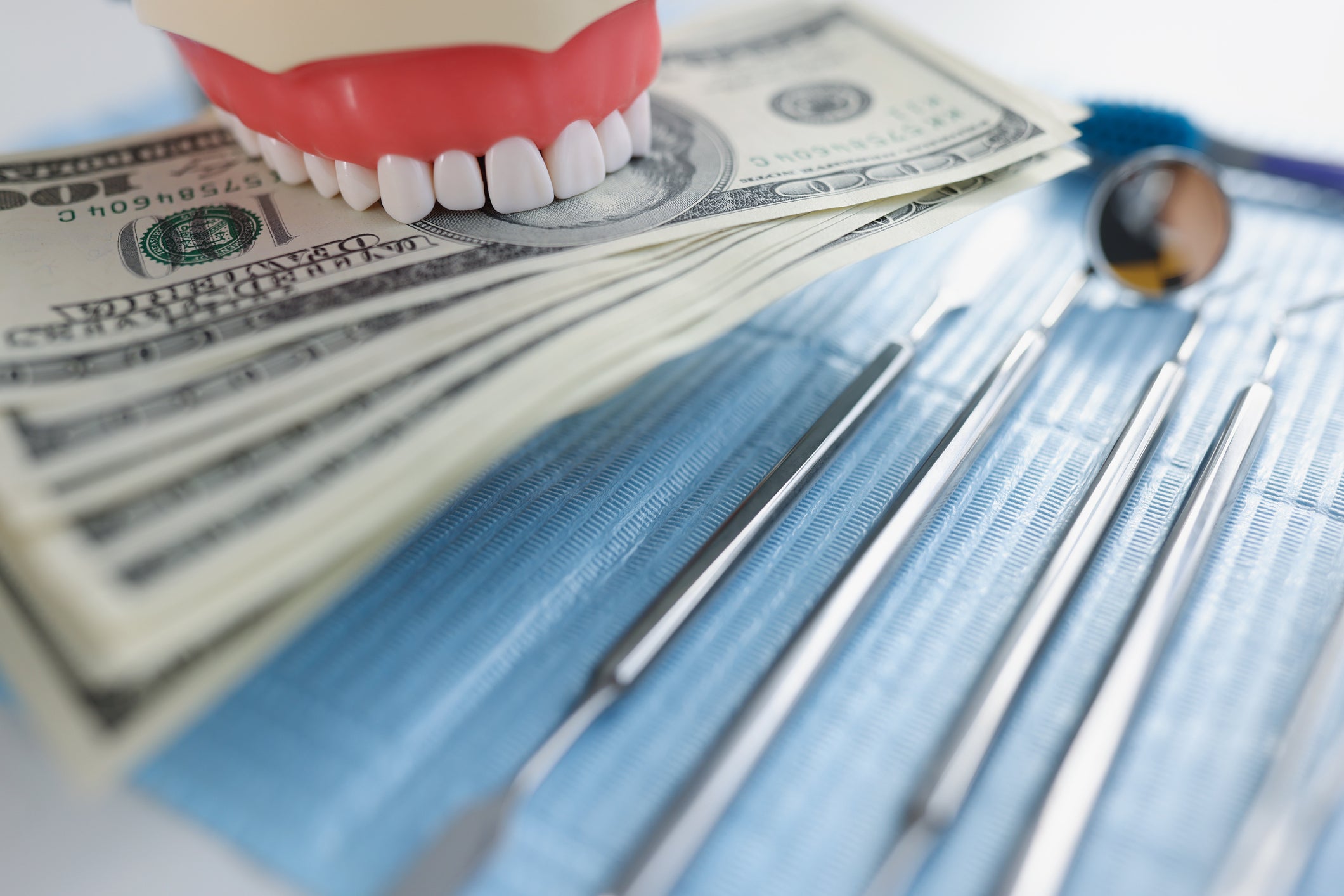
When it comes to saving money, few people think about their oral health care routine. However, there are several ways that you can save money on your oral health care without skimping on the quality of products that you receive. Here are a few tips to get you started.
Buy Products at Larger Supermarkets for Lower Prices
You can find good quality oral health products at your local supermarket for a fraction of the price you would pay at smaller stores. Look for brands that you trust and be sure to read the labels to make sure you are getting what you need.
Buy products from your dentist.
Sometimes it is worth it to buy directly from your dentist because they will be able to tell you exactly what you need so you don’t waste money on things you don’t. Dentists often have special deals or package pricing that can save you money in the long run.
Look at Your Local Pharmacy
Pharmacies stock oral health products and often have discounts and multibuys available. Many people don’t realize that pharmacies carry a wide variety of oral health products, and they are often very reasonably priced. Be sure to check the sale flyer before you shop so you know what deals are available.
Don’t Forget About Discount Stores
Discount shops such as dollar stores or discount department stores often have good deals on oral health products as well. Be sure to check the expiration date before you buy to make sure you are getting a good deal.
Practice Prevention
Preventive dentistry saves you time, money, and aggravation in the long run. Tips to avoid expensive dental treatments include brushing twice daily, flossing once daily, using mouthwash, and visiting your dentist regularly for cleanings and checkups.
Consider Your Diet to Safeguard Your Teeth
Eating sugary and acidic foods can damage your teeth over time and lead to cavities and other problems. Limiting these foods in your diet can help keep your teeth healthy and prevent costly dental treatment down the road.
Use Dental Insurance If You Have It
If you have dental insurance, be sure to use it! Most insurance plans will cover at least a portion of the cost of preventive care, such as teeth cleanings and X-rays. Regular preventive care can help you avoid more expensive dental problems down the road.
Look Into Dental Payment Plans When Needed
If you need dental work that is not covered by insurance, or if you don’t have insurance, ask your dentist about payment plans. Many dentists offer financing options that can make dental care more affordable.
Learn About the Child Dental Benefits Schedule
The Child Dental Benefits Schedule (CDBS) is a government-funded program that provides free or low-cost dental care for eligible children aged 2-17 years old. If you have kids, see if they qualify for the CDBS.
Why Choose Park 56 Dental in New York?
The team at Park 56 Dental is proud to offer our patients high quality, affordable dental care in New York in a comfortable and convenient setting. Our experienced staff is devoted to providing each patient with individualized attention and care. Contact us today to schedule an appointment! We look forward to meeting you soon!
-
How a Natural Sweetener Can Help with Your Teeth

If you’re looking for a way to reduce your risk of tooth decay, xylitol may be the answer. Xylitol is a natural sweetener that can be found in a variety of products and foods. It’s also been shown to have dental benefits, including reducing the risk of cavities and gum disease. Here’s what you need to know about xylitol and its oral health benefits.
What is Xylitol?
Xylitol is a sugar alcohol that occurs naturally in fruits, vegetables, and other plant-based sources. It’s commonly used as a sugar substitute in food and beverages because it has a sweet taste but doesn’t cause the same blood sugar spikes as regular sugar. Xylitol is also used in a variety of products, such as chewing gum, toothpaste, and mouthwash.
What Products and Foods Contain Xylitol?
Xylitol is found in a variety of foods and beverages, including baked goods, candy, chocolate, fruit juices, jam, syrup, and yogurt. It’s also available as a dietary supplement. You can find xylitol-sweetened products in most grocery stores and health food stores.
How Xylitol Affects Your Teeth
When it comes to oral health, xylitol has several benefits. Xylitol has been shown to reduce the risk of cavities by preventing the growth of bacteria that cause tooth decay. It also helps to repair damaged tooth enamel. Xylitol also stimulates saliva production, which helps to keep your mouth healthy and free of bacteria.
How Does Xylitol Compare to Sugar?
Compared to sugar, xylitol is a healthier choice for your teeth. Sugar promotes the growth of cavities-causing bacteria, while xylitol inhibits bacterial growth. Xylitol is also lower on the glycemic index than sugar, so it won’t cause the same blood sugar spikes. And because xylitol is a natural sweetener, it’s a good choice for people who are looking for a healthier alternative to sugar.
Is Xylitol Safe?
Xylitol is safe for most people. However, like any other food, it’s important to eat it in moderation. Xylitol is safe for people of all ages, including pregnant women and children. However, if you have diabetes, xylitol may cause your blood sugar levels to rise. If you have any concerns about consuming xylitol, talk to your doctor or dentist.
The Use of Xylitol for Oral Health
Xylitol has been shown to be effective in preventing cavities and gum disease. It’s also a good choice for people who are looking for a natural alternative to sugar. If you’re interested in using xylitol for your oral health, talk to your dentist. They can recommend products that contain xylitol and advise you on how much to use.
Can Xylitol Restore Cavities and Reverse Gum Disease?
Xylitol has been shown to be effective in preventing cavities. However, it’s important to note that xylitol cannot reverse cavities or gum disease. If you have cavities or gum disease, it’s important to see your dentist for treatment.
Schedule an Appointment with Park 56 Dental in New York Today to Learn More About Oral Care and Wellness
If you’re interested in learning more about oral care and wellness, schedule an appointment with Park 56 Dental in New York today. We offer a variety of dental services, including preventive care, restorative dentistry, cosmetic dentistry, and more. We also offer a wide range of dental products, such as toothpaste, floss, mouthwash, and more. Contact us today to schedule an appointment.
-
How Your Teeth Can Affect Your Breathing

Do you ever feel like you can’t catch your breath? Or that your mouth is always dry? These could be signs that your teeth are affecting your breathing.
When you breathe through your nose, the air goes down your throat and into your lungs. But if you have a blockage in your nose, such as from a cold or allergies, it can make it hard to breathe. This can also happen if your teeth are crowding your mouth and blocking your nasal passages.
Your teeth can also affect how well you can take deep breaths. If they’re misaligned, it can make it harder for your lungs to expand fully. And if you have an overbite or underbite, it can restrict airflow and make it difficult to get enough oxygen.
If you’re experiencing teeth-related breathing issues, read on for more information and tips for treatment.
Misaligned Teeth and Your Airway
If you have misaligned teeth, it can affect your airway. This is because your tongue may not be able to rest properly in your mouth, which can cause obstruction of your airway. In some cases, this can lead to sleep apnea.
What Is Sleep Apnea?
Sleep apnea is a serious sleep disorder that occurs when a person’s breathing is interrupted during sleep. People with sleep apnea often snore loudly and stop breathing for short periods of time. This can cause irregular heartbeats, low blood oxygen levels, and other health problems.
There are several treatments available for obstructive sleep apnea, including lifestyle changes, mouthpieces, and surgery. If you think that your misaligned teeth may be affecting your airway, you should talk to your dentist about getting braces or other corrective treatment.
Gaps in Your Teeth
If you have gaps in your teeth, it can also make it difficult to close your lips, which can also cause snoring. Gaps in your teeth can also affect the shape of your airway. This can also lead to sleep apnea. If you have gaps in your teeth and think you might have sleep apnea, it’s important to see a doctor so you can get treated.
Missing Teeth
When you lose teeth, it can influence how you breathe. This is because your teeth help to support the structure of your mouth and jaw. Without them, your mouth may collapse inward, which can cause problems with breathing. Additionally, missing teeth can make it difficult to correctly close your lips, which can also lead to breathing difficulties. If you are missing teeth and are having trouble breathing, be sure to talk to your dentist so he can help you find a solution.
The Consequences of Mouth Breathing
In some cases, teeth may also affect how you breathe by causing mouth breathing. Mouth breathing can be caused by several different factors, including teeth that are too far forward in the mouth (known as an overbite), or by a blockage in the nasal passages.
Mouth breathing can lead to several different problems, including dry mouth, bad breath, and even difficulty swallowing. If you think you may be mouth breathing, it is important to see a dentist or doctor so that they can determine the cause and help you find a solution.
What to Do
If you are experiencing any of these problems, it’s important to see your dentist at Park 56 Dental to find out if there is anything that can be done to improve the way you breathe. In some cases, simple dental treatments can make a big difference.
In other cases, more extensive dental work may be necessary. But in all cases, it’s important to talk to your dentist about your breathing problems so that you can get the treatment you need to improve your overall health. Contact us today to schedule an appointment and start getting your z’s!
-
Debunking Dental Myths
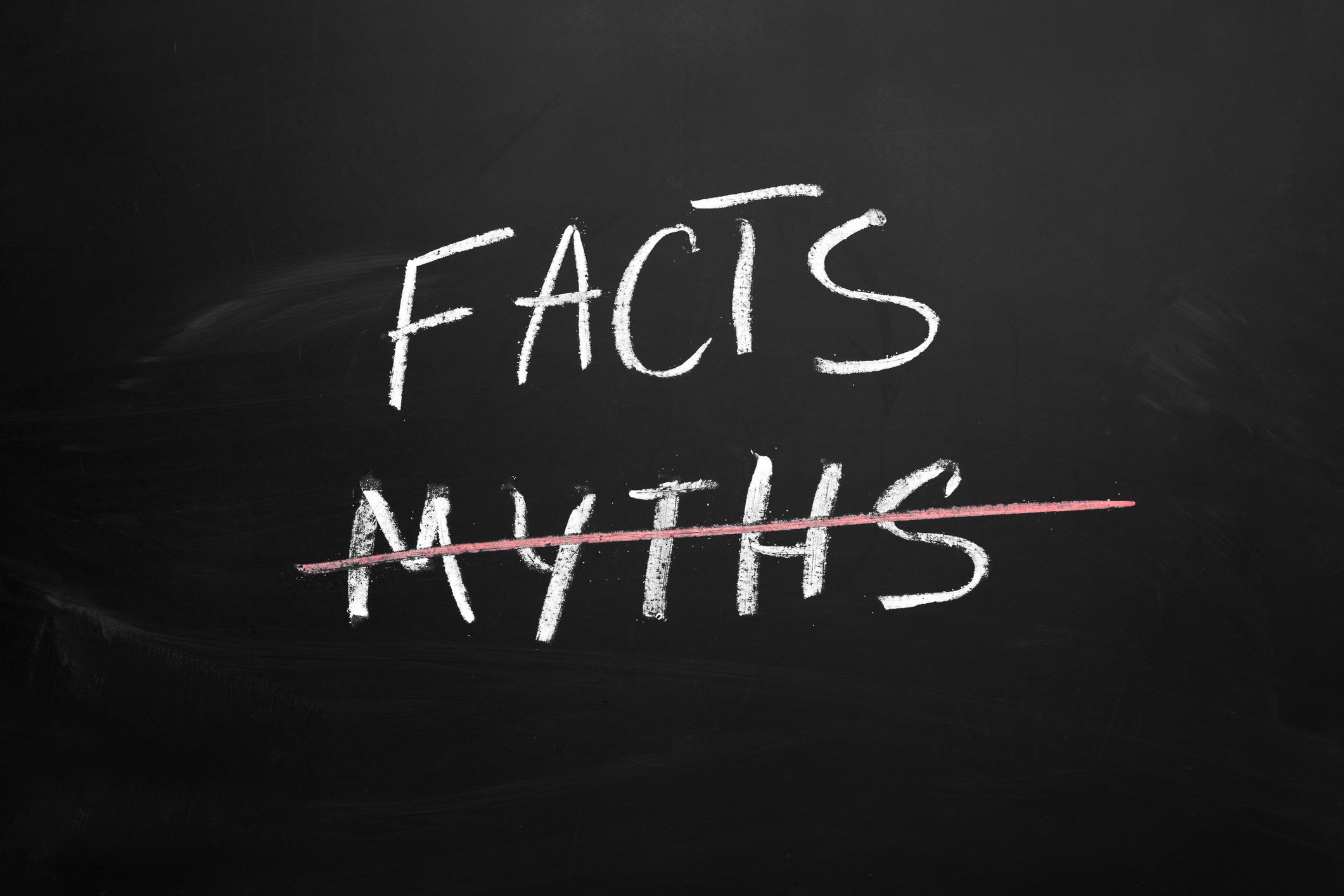
There are many reasons dental myths exist. Sometimes, they are perpetuated by people who want to sell a product or service. Other times, they are simply the result of misinformation. And still other times, they may be based on outdated information or folk beliefs.
Whatever the reason, dental myths can be harmful if they lead people to make decisions about their oral health that are not in their best interests. That’s why it’s important to be aware of some of the most common dental myths and to know the facts behind them.
Myth 1: Hard Toothbrushing Damages the Enamel
One common myth is that brushing your teeth too hard will damage your enamel. The truth is that while aggressive brushing can cause wear and tear on your tooth enamel, it is not likely to damage it. However, brushing too hard can irritate your gums and cause other problems.
Myth 2: You Don’t Need to Floss If You Brush Regularly
Another myth is that flossing is not necessary if you brush regularly. This is simply not true. Brushing alone cannot remove all the plaque and bacteria from between your teeth. Flossing is an important part of oral hygiene because it helps to remove these things and can prevent gum disease.
Myth 3: Mouthwashes Don’t Really Work
A third myth is that mouthwashes are not effective at reducing plaque or preventing gum disease. Again, this is false. Mouthwashes can help to reduce plaque and keep your gums healthy. Just be sure to a mouthwash that contains fluoride, as this will help to protect your teeth from cavities.
Myth 4: You Should Brush Your Teeth After Every Meal
You don’t need to brush your teeth immediately after eating. It’s actually more important to wait 30 minutes to an hour before brushing, so that the acids from your food have time to dissipate.
Myth 5: Whitening Products Will Damage Your Teeth
Professional whitening treatments performed by your dentist are safe and will not damage your teeth. Over-the-counter whitening products may cause some sensitivity, but this is usually temporary.
Myth 6: Dental Visits Are Only Necessary When You Have Problems with Your Teeth
It’s important to visit the dentist regularly for checkups and cleanings, even if you’re not experiencing any problems with your teeth. This way, your dentist can catch any problems early and prevent them from getting worse.
We hope this has helped clear up some of the myths surrounding dental care! Remember, brushing twice a day, flossing daily, and visiting your dentist regularly are the best ways to maintain healthy teeth and gums.
Choose Park 56 Dental in New York for Your Dental Needs!
If you’re looking for a dentist in New York, look no further than Park 56 Dental. Our experienced dentists and staff provide comprehensive dental care for patients of all ages, from routine cleanings and exams to more complex procedures like root canals, tooth extractions, and dental implants. We use the latest technology and techniques to ensure that our patients receive the best possible care.
Call us today at 646-679-3989 to schedule an appointment!
-
How Water Plays a Role in Dental Health

You probably already know that drinking enough water is essential for good health. After all, it keeps your skin radiant, encourages proper organ function, and helps distribute nutrients around the body. But have you considered how water plays a role in dental health? Dentists promote drinking water as one of the easiest and most beneficial things you can do to promote a healthy smile, especially if the water contains fluoride. Here’s why.
Strengthen Your Pearly Whites
Fluoride is nature’s cavity fighter. When added to drinking water, the optimal fluoride level strengthens teeth and makes them less prone to decay. Most municipal water supplies around the US have fluoridated water, including New York City. The American Medical Association, the American Dental Association, and the Centers for Disease Control and Prevention commend fluoridation as one of the top 10 most important public health measures of the 20th century.
Wash Away Particles and Debris
Water cleans your mouth with every sip, washing away leftover particles and residue that cavity-causing bacteria love to eat. Water also dilutes the acids produced by oral bacteria and helps your breath stay fresh. Of course, you still need to brush and floss daily to deep-clean your teeth and gums, but drinking water throughout the day goes a long way.
Prevent Dry Mouth
Saliva, which is 99% water, is your mouth’s first line of defense against cavities. One of the most important roles of saliva is to remineralize your teeth with calcium, phosphate, and fluoride. A depleted saliva level, also known as dry mouth, interrupts the remineralization process, increasing your risk for tooth decay. While certain underlying diseases and medications can cause dry mouth, drinking water is an easy way to keep this condition at bay.
Avoid Excess Sugar Consumption
Juice, soda, and sports drinks may wash down your meal, but they leave unwanted sugar and acid behind. Sugar feeds harmful oral bacteria, which can lead to cavities. At the same time, acid erodes the outer layer of your teeth, known as enamel, leaving the underlying dentin more vulnerable to decay. Drinking water causes none of these problems. In fact, it rinses away residue to achieve a healthy equilibrium in your mouth.
Protect Your Overall Health
Have you heard of the mouth-body connection? Cavities and gum disease can send harmful inflammation-causing bacteria to other parts of the body through your bloodstream. This increases your risk for heart disease, rheumatoid arthritis, respiratory infections, kidney disease, and other health complications. By drinking more water and adopting other good oral hygiene habits, you can protect your overall health for years to come.
If you make only one change regarding your oral health, have it be to drink more water! Then, remember to visit Park 56 Dental for a checkup twice a year. We’ll help your smile stay healthy and bright with routine cleaning and restorative services when you need them. Call us at (212) 826-2322 or contact us online today to schedule your next visit with NYC’s best dentist.
-
Can regular dental cleanings help with your lungs?
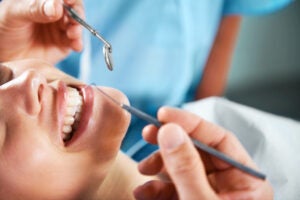
You’ve no doubt heard that seeing your dentist regularly is important for your health. Not only do twice yearly dental cleanings reduce your risk of tooth decay, cavities, and gingivitis, but they also protect against problems like cardiovascular disease. But what do dental cleanings have to do with your lungs? According to a recent study, your trips to the dentist could have a major impact on your respiratory system.
What’s the connection between dental cleanings and the lungs? When bacteria spreads to your lungs, this can result in lung infections. There are two ways bacteria can enter the lungs. The first is through inhalation. Saliva droplets are carried in and out of the mouth as we breathe, and bacteria in the saliva can enter your lungs. Most of the time, this isn’t a problem, because the immune system can protect you against becoming ill. However, if your oral health is poor and your immune system is overworked because of it, the lungs can become inflamed. The other route for bacteria to enter the lungs is through the bloodstream. If your mouth is unhealthy and gum disease is breaking down your gum tissues, the damaged tissue can allow bacteria to enter the bloodstream, causing inflammation throughout the body.
The study was authored by Dr. Michelle Doll, assistant professor of internal medicine in the infectious disease division at Virginia Commonwealth University. In the course of the research, the records of over 26,000 people were reviewed. Researchers found that, of the subjects studied, those who never sought dental care were 86 percent more likely to contract bacterial pneumonia than people who had twice yearly dental checkups. Routine preventive dental care, including caring for teeth at home through brushing and flossing as well as having regular dental exams and cleanings, is an important part of protecting against this kind of infection.
About one million Americans contract pneumonia each year, and about 50,000 of those people die from it. Pneumonia can affect anyone, but it’s more common- and more dangerous- in older people and people with lung conditions or autoimmune disease. While it’s impossible to keep all bacteria out of the lungs, it’s good to know that you can help protect yourself from pneumonia and other diseases by practicing good oral hygiene and seeing your dentist regularly.
Whether you need a cleaning, specialty oral healthcare, or just good dental advice, choose the practice that was voted best dentist in NYC! At Park 56 Dental Group, we offer pediatric, prosthodontics, endodontics, oral surgery, Invisalign®, emergency, and sedation dentistry, all at the highest level of treatment. We serve the Midtown, Central Park, Upper East Side, Park Avenue, and all surrounding Manhattan and New York areas, with a patient-centered practice that has hours to fit your schedule. Schedule your complimentary consultation today by contacting us online or calling us at (212) 826-2322.
-
How Acid Reflux Can Ruin Your Teeth

Heartburn is a common complaint, but if you’re experiencing heartburn or acid indigestion on a daily basis, you may be suffering from Acid Reflux, also known as GERD, Gastroesophageal Reflux Disease. GERD happens when the muscles of the esophagus relax and let stomach acids flow upward, sometimes into the mouth. As the condition progresses, the esophageal lining becomes corroded. It’s very uncomfortable, causing the burning sensation of heartburn. But have you ever considered that acid reflux could be damaging your teeth?
Some of the symptoms of GERD include not only heartburn, but also difficulty swallowing, a burning sensation in the mouth, a sore throat and regurgitation. A person with GERD may experience nausea, vomiting, belching, and chronic coughing. Stomach acid that reaches the mouth can also cause erosion of tooth enamel, tooth sensitivity, chipping and discoloration of teeth, and bad breath.
You probably already know that acid is bad for your tooth enamel. Oral acid, which is usually produced by bacteria, foods, and beverages, can dissolve the minerals in enamel, causing erosion and decay. Stomach acid is extremely strong, with a pH of 2.0 or less, so it can cause even worse damage to the enamel, leaving teeth yellowed, pitted, and sensitive.
What can you do to keep GERD from ruining your teeth? Talk to your doctor about managing your symptoms. You might need medication, and your doctor may recommend some lifestyle changes. These include:
- Avoiding trigger foods like chocolate, tomato-based foods, alcohol, coffee, and spicy or greasy foods.
- Quitting smoking.
- Not eating for several hours before bed.
- Losing weight.
- Not wearing tight clothing.
You can also lessen the effects of acid in your mouth. This can be done by stimulating saliva production by drinking water, taking a saliva booster, or chewing gum. You can also help neutralize acid by rinsing with plain water or a cup of water mixed with ½ teaspoon of baking soda. Antacid tablets can also help balance the pH of your mouth.
Your dentist can also help. Fluoride can strengthen your enamel, and your doctor can apply topical fluoride or prescribe a special rinse that has a higher fluoride concentration than you can get over the counter. Seeing your dentist twice a year allows the condition of your enamel to be evaluated, and your dentist can catch and treat problems while they’re still minor.
If you’re looking for a dentist in New York, choose the practice that was voted best dentist in NYC! At Park 56 Dental Group, we offer pediatric, prosthodontics, endodontics, oral surgery, Invisalign®, emergency, and sedation dentistry, all at the highest level of treatment. We serve the Midtown, Central Park, Upper East Side, Park Avenue, and all surrounding Manhattan and New York areas, with a patient-centered practice that has hours to fit your schedule. Schedule your complimentary consultation today by contacting us online or calling us at (212) 826-2322.
-
The Link Between Periodontal Disease and Premature Birth

It’s long been known that periodontal disease is a serious health problem. Beyond causing tooth loss and bleeding gums, periodontal disease can be detrimental to the whole body when bacteria from infected gums enters the bloodstream. Now, new research has revealed a link between periodontal disease and pre-term birth, showing that women with gum disease are substantially more likely to go into early labor than women with healthy gums.
The study, conducted by University Hospital Hradec Králové, Czech Republic, and led by Dr Vladimíra Radochová, from the department of dentistry, was published in the Journal of Clinical Periodontology. According to the Chief Executive of the Oral Health Foundation, Dr. Nigel Carter OBE, the research underscores the affect of oral health on a person’s overall health. The study showed that, of women who went into labor before 37 weeks of pregnancy, 45 percent had gum disease. By contrast, only 29 percent of women who experienced a perfect pregnancy had gum disease.
Worldwide, premature labor is the result of about 10 percent of all pregnancies. In the UK, the rate is about seven percent, and about 10 percent of babies in the United States arrive early, according to the Centers for Disease Control and Prevention. Premature birth can be the result of changes in the cervix or premature rupture of membranes, also known as “waters breaking.” So, what’s the link to periodontal disease?
It’s thought that bacteria in plaque traveling through the bloodstream to the placenta causes inflammation. Part of the problem is that it can be difficult for women to maintain good oral health while pregnant. Hormonal changes can make the gums more likely to be sore, swollen, and even bleed, because they’re more vulnerable to plaque. The women involved in the study who went into early labor were found to have eight times more plaque than the women with more favorable outcomes, and dental health that was four times lower. In addition to gum disease, women who had premature labor were more likely to have untreated tooth decay or fillings.
The takeaway from the study is that it’s important for a woman to care for her mouth to help ensure a healthy pregnancy. Brushing twice a day and flossing can help maintain oral health, and refraining from smoking and alcohol consumption can also reduce the chance of gum disease. Most important are regular dental appointments, to stay on top of oral health issues and keep periodontal disease at bay.
During pregnancy and every other stage of life, when you’re looking for excellent dental care and advice you can trust, choose the practice that was voted best dentist in NYC! At Park 56 Dental Group, we offer pediatric, prosthodontics, endodontics, oral surgery, Invisalign®, emergency, and sedation dentistry, all at the highest level of treatment. We serve the Midtown, Central Park, Upper East Side, Park Avenue, and all surrounding Manhattan and New York areas, with a patient-centered practice that has hours to fit your schedule. Schedule your complimentary consultation today by contacting us online or calling us at (212) 826-2322.
-
Why You Should Invest in Your Dental Health
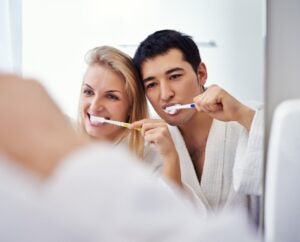
Hey! Yes, you! You matter! Let’s talk about an important way to show your body that you care!
Yep! We’re talking about your dental health and, in turn, your overall wellbeing! Your mouth is there for you to help with communicating, both verbally and non-verbally, breathing, and eating. Your confidence is conveyed through the communications that start from your mouth, including both your teeth and your smile! It is quite difficult to imagine living without a functioning mouth!
Did you know that your oral hygiene and dental health practices impact your entire body? In fact, many health problems, including oral health, are preventable just by intentionally caring for your teeth! So, let’s dive in and see why it is worth your time to invest in your dental health!
- Daily Habits are Healthy Habits
Plaque build-up is a leading cause in gum disease which leads to heart disease, cancer, and other illnesses. Flossing, brushing, and using antibacterial mouthwash are simple daily habits that can prevent not only cavities but also gum disease and other illnesses.
Check out this fact: The U.S. Centers for Disease Control (CDC) estimates that 31.6% of adults between the ages of 20 and 44 currently have untreated cavities AND that 46% of adults over the age of 29 already have gum disease. While this is shocking news, matters are made worse by the fact that this is preventable by employing simple daily oral health routines.
- Your Overall Health
Proper hygiene habits and a nutritious diet benefit not just your teeth and gums but your entire body’s health and wellbeing. Preventing gum disease can lead to reducing the risk of other complications, including heart disease, certain types of cancer, respiratory problems, kidney disease, joint inflammation, and even diabetic complications.
Having healthy daily habits is important AND so is keeping routine dental visits a priority. Just like you go to doctors for other annual check-ups, it is extremely important to visit your dentist every 6 months for routine cleanings, x-rays, and check-ups. Just remember, prevention is WAY easier than treating a problem that does arise! Besides, consistent proper care is FAR more comfortable (and affordable) than treating problems that do arise!
- Your Teeth Are Worth Your Investment
Daily habits, such as flossing, brushing and using mouthwash, most definitely help with caring for your teeth and oral hygiene. It is also very much worth your time and money if you see a dentist regularly, every 6 months, for a full cleaning and exam. Look at this cost and prevention as an investment in critical resources rather than “just another expense” because the pain of dental problems and payment for their repairs can be mostly avoidable.
At Park 56 Dental, we are dedicated to safely and comfortably helping you care for your smile. Our talented staff are compassionate about our services. Contact us today to make an appointment and invest into the quality and caring of and for your smile! So, what are you waiting for? Contact us today to schedule an appointment at (646)679-3989!
-
The Link Between Your Oral Health and Alzheimer’s
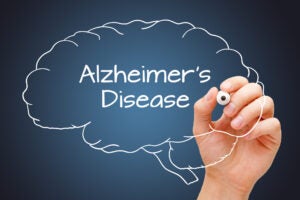
It seems far-fetched to say that your oral health and Alzheimer’s disease could possibly be connected. However, this is exactly the claim that research is beginning to suggest.
As research has been done to compare the brains of people with and without Alzheimer’s disease, scientists have discovered that individuals who suffer from Alzheimer’s disease have an increase in levels of certain bacteria that are also responsible for the cause of gum disease, such as porphyromonas gingivalis and a toxic enzyme that it creates called gingipains. Gingipains is secreted from this bacteria and has been found to destroy the brain’s neurons. This similarity between gum disease and Alzheimer’s is enough to suggest that the prevention of gum disease may also be connected to the possible prevention of Alzheimer’s
In a different study led by the CDC’s National Center for Health Statistics, baselines were taken and individuals were tracked with follow-up data kept for up to 26 years. Up to 19 antibodies were found that are associated with Alzheimer’s with the most fatal being, again, porphyromonas gingivalis and its production of the toxic enzyme gingipains.
So, it makes sense to work hard to prevent gum disease and, therefore, reduce the risk of MANY other problems!!
What do I do if I already have gum disease?
Healthy oral hygiene habits can decrease the risk of gum disease. Continue to improve and maintain healthy habits, including:
- flossing daily
- brushing your teeth 2-3 times a day
- using antibacterial mouthwash
- changing your toothbrush every 3 months
- being intentional about what foods and drinks you comsume
Remember, also, to visit your dentist at least 2 times a year for cleanings. If your teeth are showing signs of plaque build-up, there is a procedure for deeper cleaning of the teeth and gums that may be right for you. Continuing to care for your teeth is of the utmost importance. Your health and wellbeing are so valuable, especially to those whom you love!
How can I protect myself?
Keep learning and researching! Education is the key to making informed and improved decisions. Some of your health journey is genetic, but some is left up to you and the choices that you make for taking care of yourself. You may not be able to change past decisions but you can certainly work toward staying the healthiest you can possibly be. Whether you have always been on top of your oral health and hygiene or you have room for improvement, remember that your teeth and gums impact your whole body’s wellness.
While this research is still undergo, you have the ability to be proactive. Clean teeth make for a healthier you! Stay informed and maintain that amazing smile! Schedule a cleaning today so that you can maintain healthy teeth, heart, and mind!
You are worth the time, energy, and expense of a happy, healthy smile! So, go ahead and take some much needed time to invest in yourself and your future! You’ll be so very glad that you did!!! Call Park 56 Dental today at
RECENT POSTS
categories
- Uncategorized
- Cosmetic Dentistry
- Veneers
- Healthier Teeth
- Teeth Whitening
- Dental Health
- Video
- Dental Emergencies
- Invisalign
- Dental Implants
- Root Canal
- Sedation Dentistry
- Infographic
- Dental Crowns and Bridges
- Dental Anxiety
- Gum Disease
- COVID-19
- Bad Breath
- New York Dentist
- Cut out sugar
- General Dentistry
- Oral Health
- Oral Cancer
- Dry Mouth
- Gum Health
- Toothache
- Dental Sealants
- Cavities



